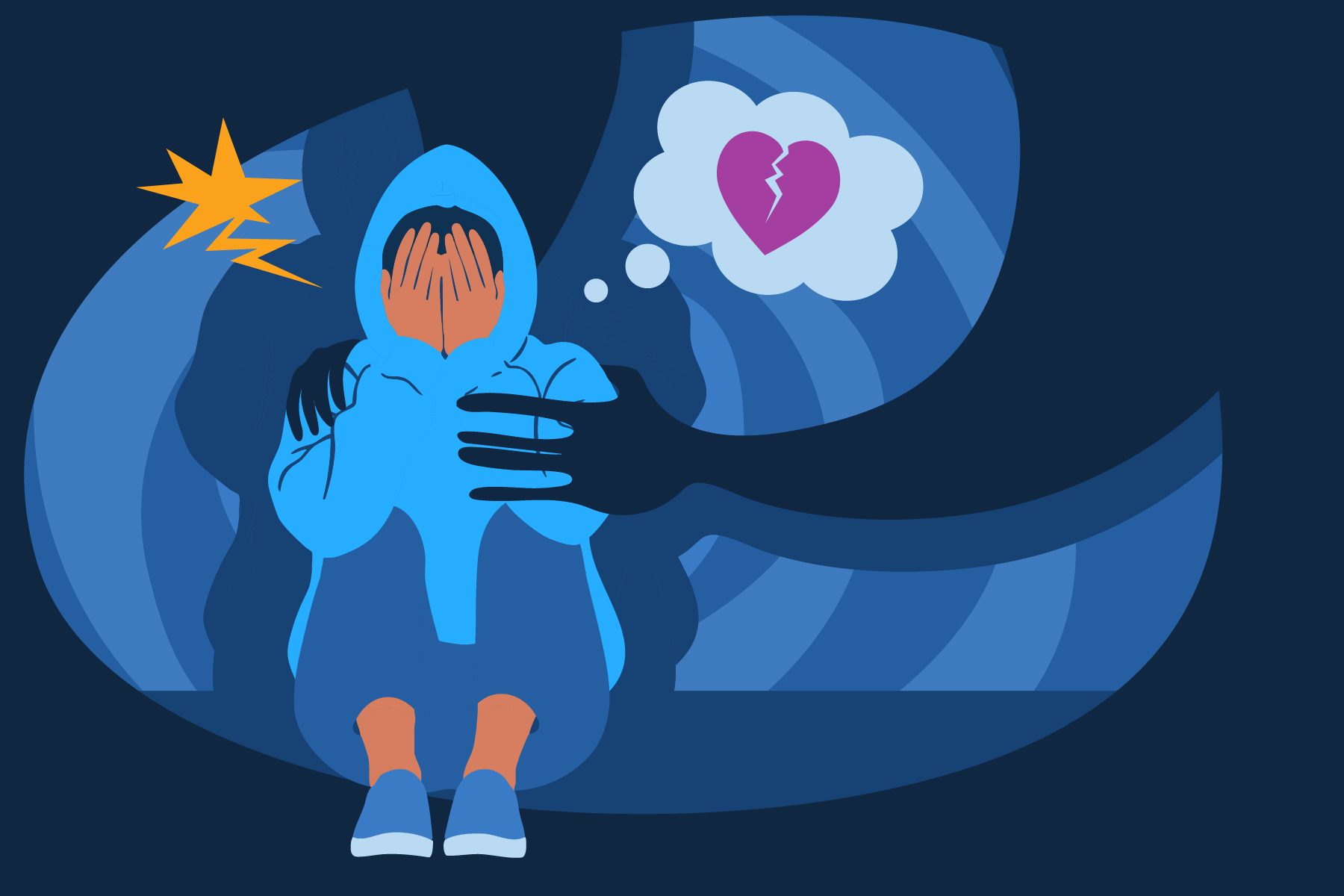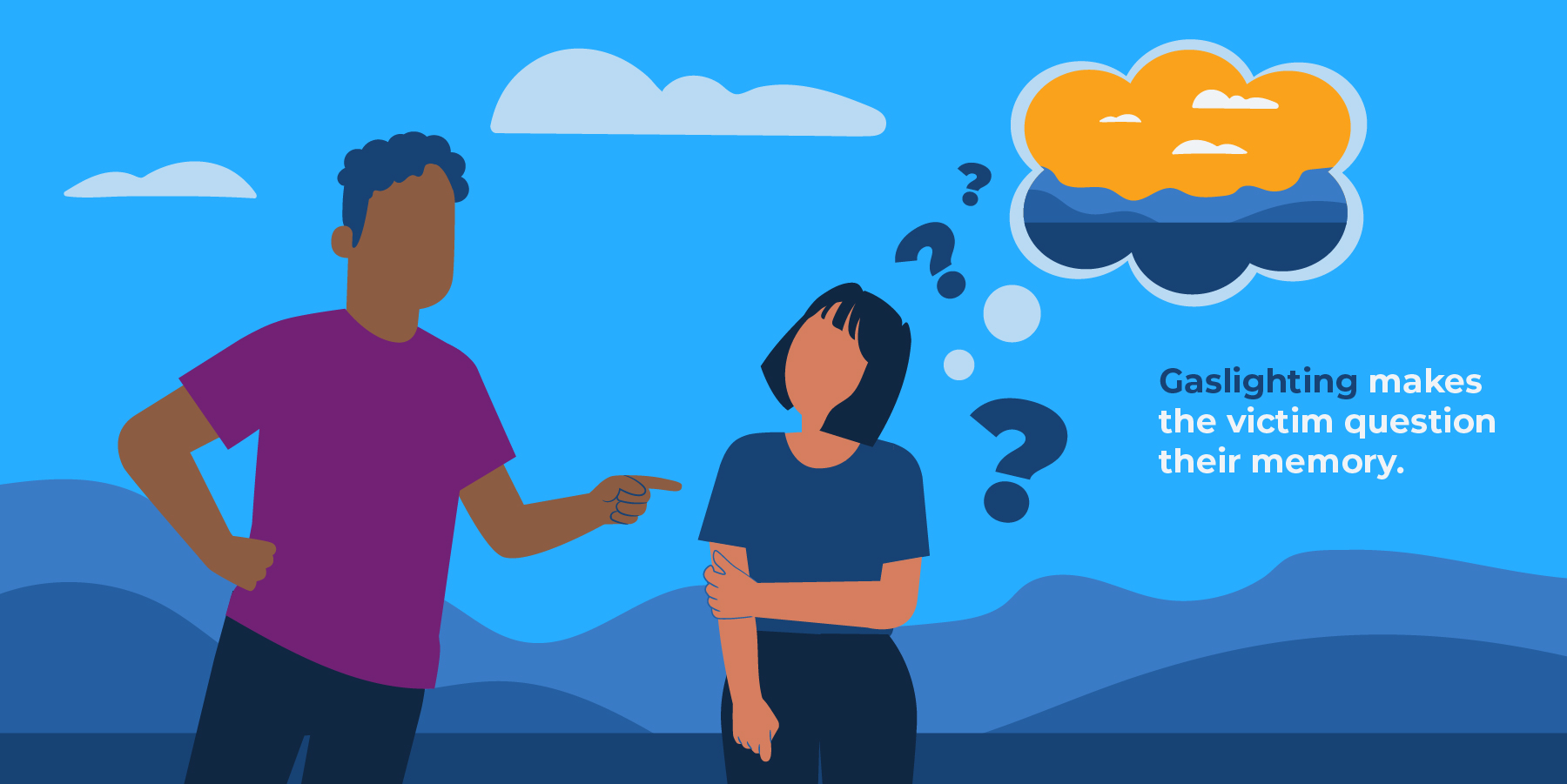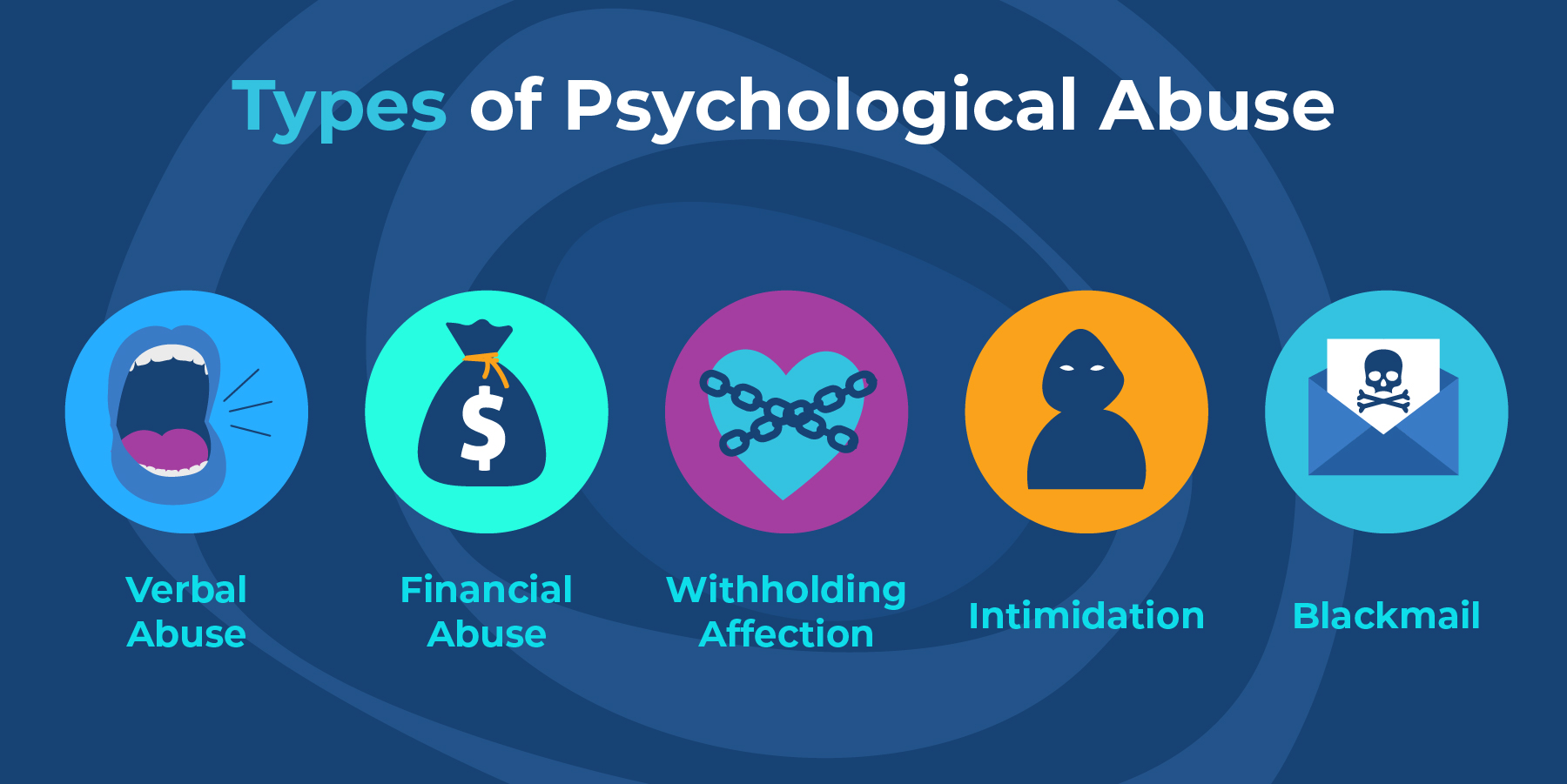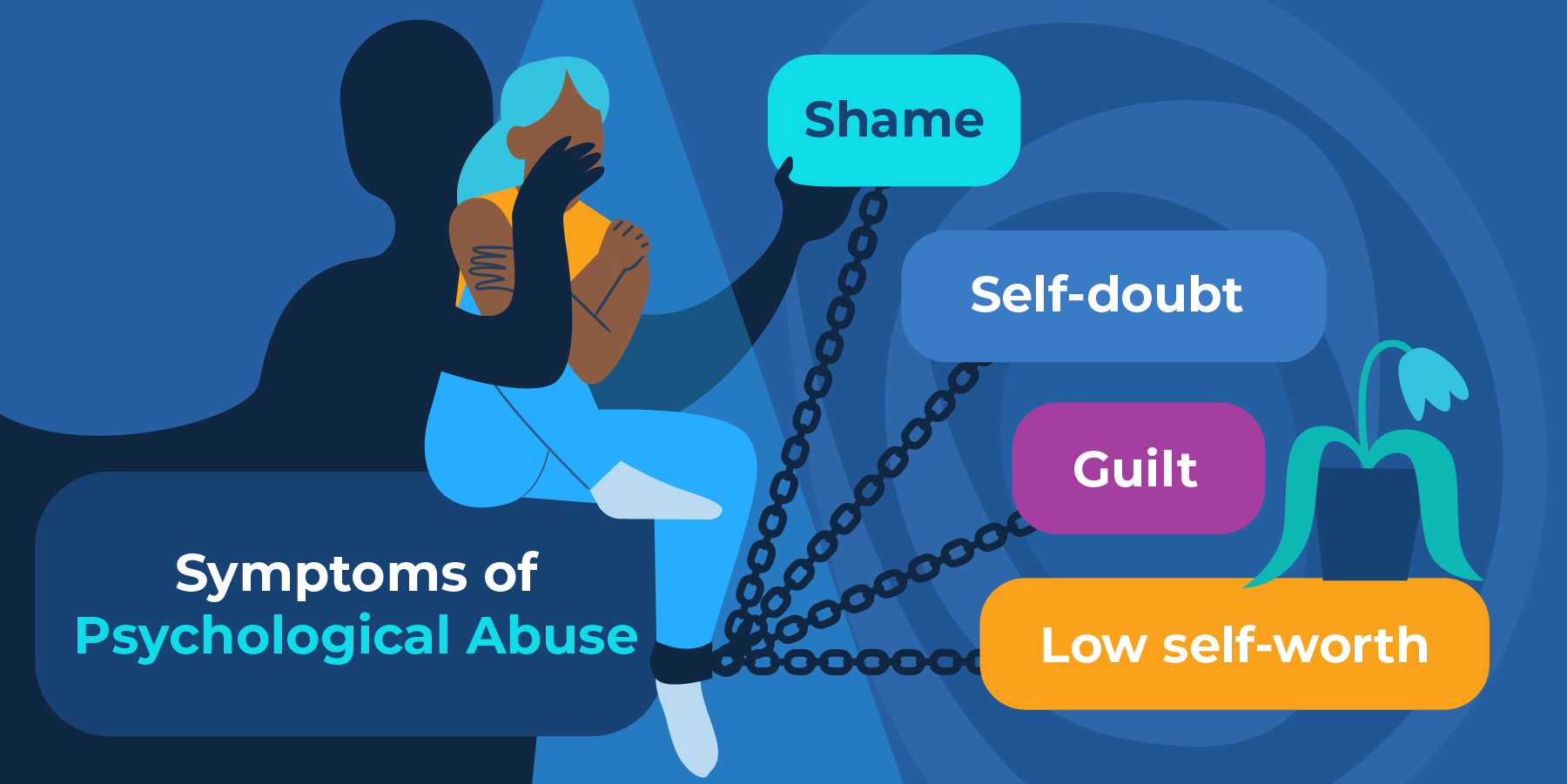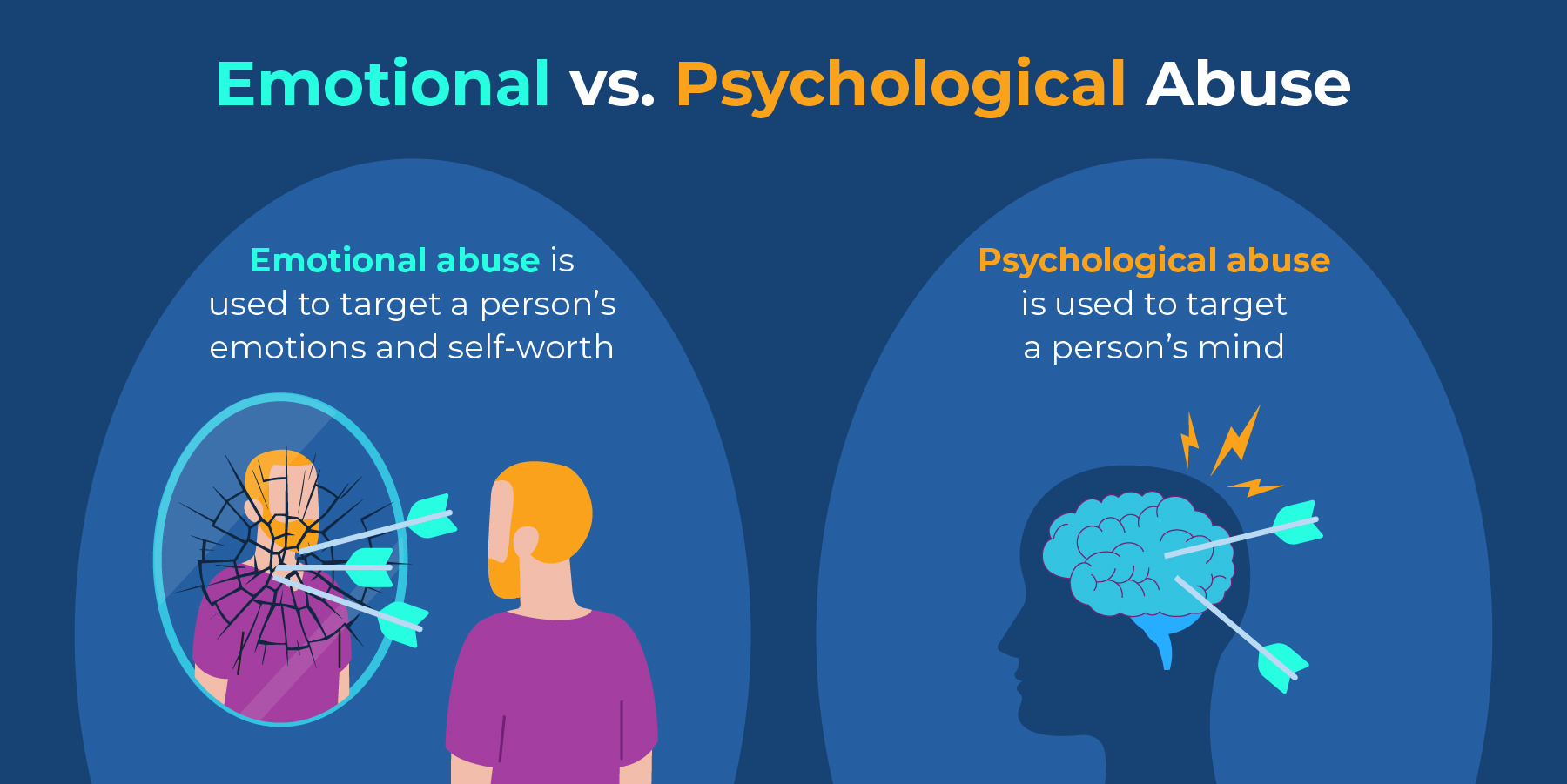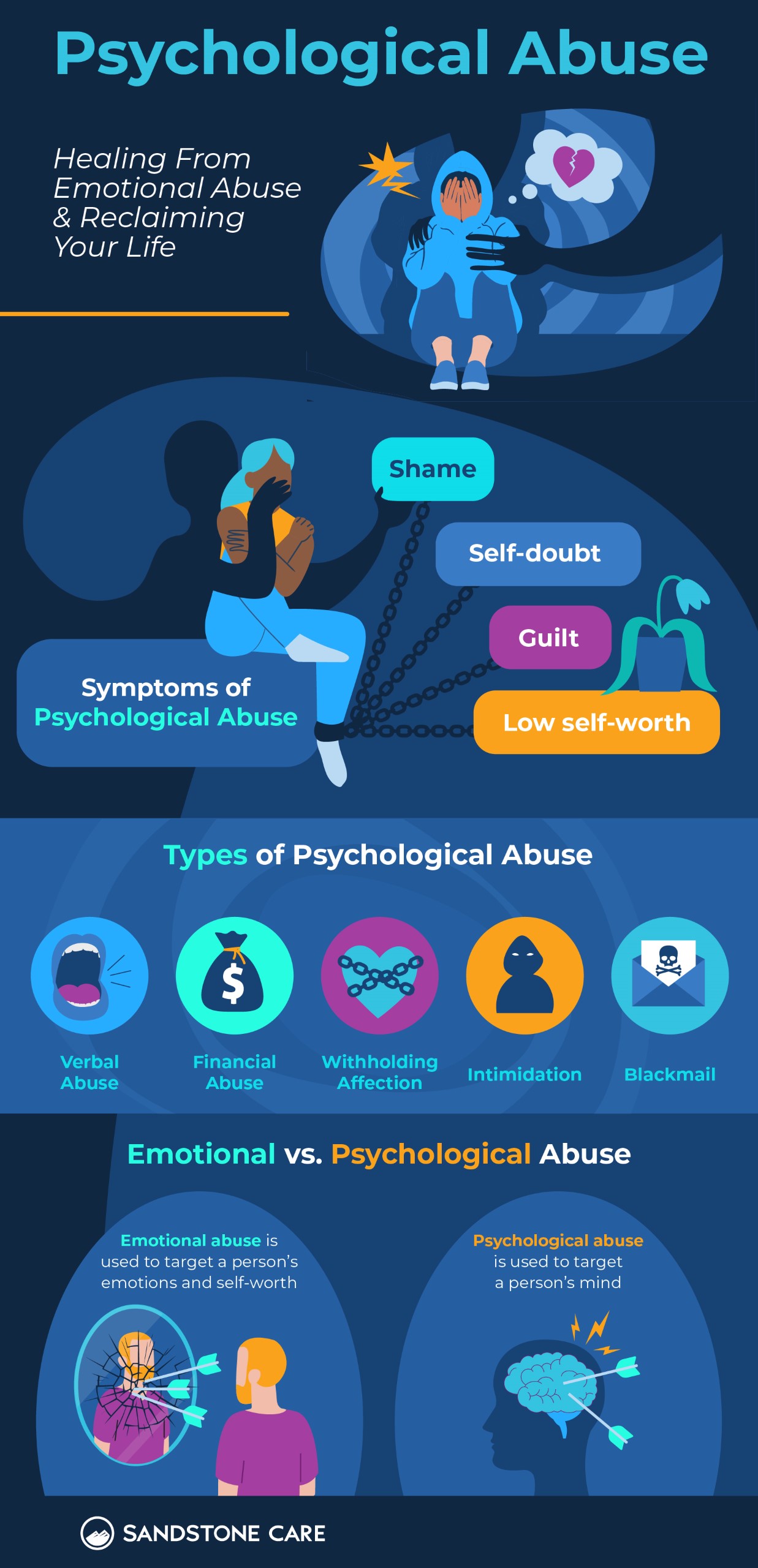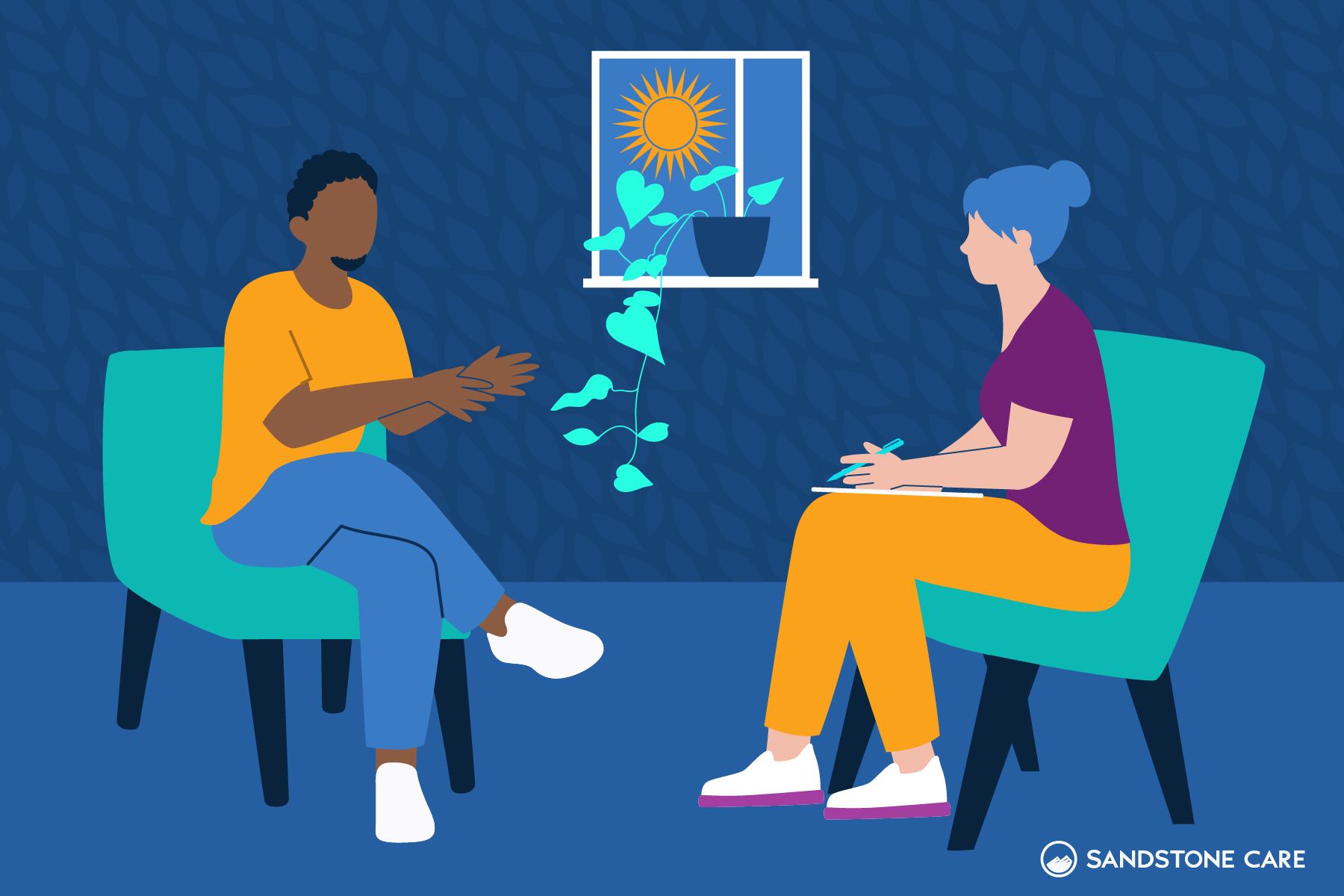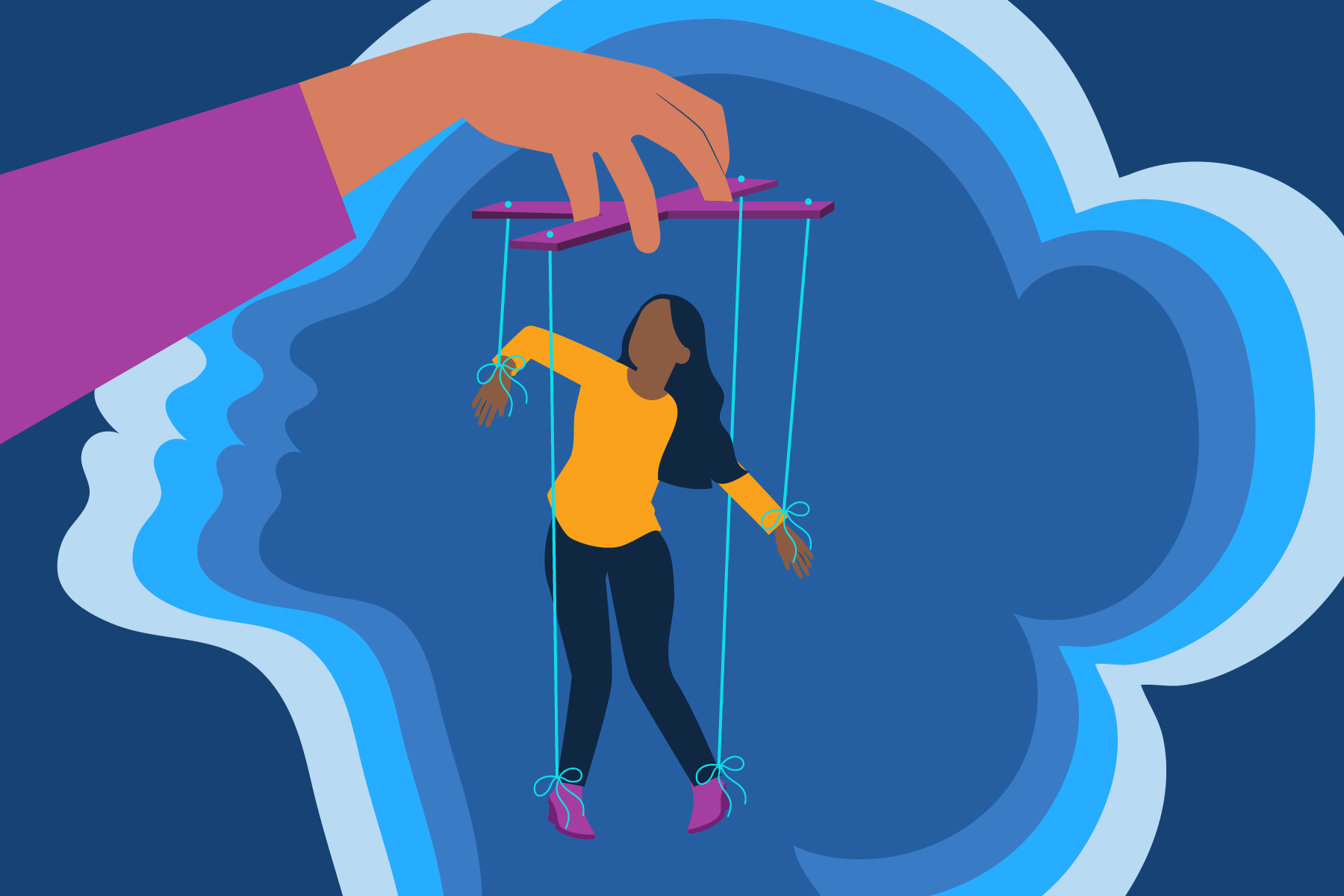Understanding Psychological Abuse
What Is Psychological Abuse?
Psychological abuse is a type of mental abuse that often involves tearing down someone’s mental and emotional well-being through the means of coercive control, manipulation, gaslighting, name-calling, or other tactics that can tear down a person’s self-worth.
This can occur in a lot of different forms, from intimate relationships to child abuse. It may also involve verbal abuse or financial abuse. It is considered a form of domestic violence.
This form of abuse is very dangerous and can lead to serious mental health problems such as post-traumatic stress disorder (PTSD), anxiety, depression, and low self-esteem. Many people who are in a relationship with someone who is psychologically abusing them don’t recognize that they are being abused. They may not report it as abusive behavior because there might not be any physical violence taking place.
However, in many cases, this kind of abuse only continues to progress over time. If the person doesn’t seek help and get out of the situation, it can lead to a serious and incredibly dangerous situation in the future.
If this is something that you’re going through, there are resources and guidance available. Our team at Sandstone Care can help you learn more.
Is Psychological Abuse Domestic Violence?
Yes, psychological abuse is considered domestic violence.
Domestic violence is often defined as any sort of behavior that is meant to threaten, control, or intimidate another person. Even if there is no physical contact, this is still considered a form of abuse, and it can lead to serious legal repercussions. Many abusers will use these tactics to try to control their partners by tearing down their sense of self so that they behave in the way that they desire.
In addition, an abuser may use psychological aggression, such as name-calling or put-downs, to destroy their partner’s self-esteem as a way of ensuring the person doesn’t try to leave the situation. It can lead the other individual to feel isolated, worthless, unloved, and confused. It can also lead them to believe that they don’t deserve to be treated better.
The prevalence of domestic violence and violence against women is much more extreme than many may realize. Studies show that in the United States, one in four women is a victim of domestic violence. In addition, domestic violence affects approximately 10 million people across the country each year.
What Is an Example of Psychological Harm?
One example of psychological harm is social isolation.
An abusive person may attempt to isolate their partner from their friends and loved ones to control them.
The goal is often to make the other person feel mentally and emotionally dependent upon them. This may be done to keep them from trying to leave the abusive relationship.
Another type of psychological harm is gaslighting. This is a form of psychological harm that is used to try to get a person to question their own beliefs or memory.
It is very common as a part of intimate partner violence and other types of domestic abuse.
For example, an abusive person may try to gaslight their partner into believing that they’re always the one in the wrong and that all of the arguments they may have are their fault.
Gaslighting can also be used to try to get another person to question who they perceive themselves to be.
It can be used to destroy confidence while making the other person question their own self-worth, identity, and value as a human being.
Types of Psychological Abuse
What Are Different Types of Psychological Abuse?
There are several different types of psychological abuse, including verbal abuse, financial abuse, withholding affection, intimidation, and blackmail.
Verbal abuse involves using words to tear another person down and destroy their self-worth. It may involve put-downs and name-calling.
Financial abuse involves using money to control another person. It can happen within domestic violence relationships between partners or even between a caregiver and a person who is dependent upon them.
It includes only giving the victim of psychological abuse access to funds if they do as they are told.
Withholding affection is considered to be a type of abuse because an abuser may use it as a way to try to manipulate or control the other person.
They may ignore text messages for hours at a time or refuse to share affection with the other person until certain demands are met.
Intimidation and blackmail can often be used simultaneously. These are both ways of using fear to control another person.
Blackmail can also be done emotionally and may include guilt-tripping or shame to make the other person feel bad.
How Does Each Type of Psychological Abuse Affect Individuals?
Psychological abuse can make someone feel scared, powerless, worthless, and unloved.
Psychological violence can also make them feel trapped or as if they are not in control of their own lives. It can go on for many years.
The longer it goes on, the more trapped the person may feel and the less likely they may be to attempt to get out of the situation, even if they are in immediate danger.
Can Psychological Abuse Occur With Physical Abuse?
Yes, psychological abuse can occur with physical abuse.
In fact, psychological abuse can often progress into physical violence as time goes on.
This is one of the many reasons why it is so important to reach out for help and spend time with a health professional right away before the abuse progresses any further.
Signs of Psychological Abuse
What Are the 5 Signs of Psychological Abuse?
Psychological abuse can occur in many different ways and be difficult at times for outsiders to spot. However, there are some signs that you can look out for.
One main sign is feeling as if you are constantly having to doubt yourself. This is a consequence of gaslighting and manipulation.
It is used to try to control what you believe about yourself, your relationship, and even reality as you know and understand it.
Another sign is feeling a sense of guilt or shame as a result of the words or actions of another person.
These are powerful emotions that abusers use to try to control your behavior and make you feel trapped in the relationship. This can also lead to a sense of emotional dependency.
Another sign of psychological abuse to look out for is feeling as if your self-esteem or sense of self is constantly being destroyed by the other person.
In a healthy relationship, the other person should build you up and make you feel good about yourself.
If they are instead making you feel worthless or unloved, it may be a sign that you are being psychologically abused.
The fourth sign to be aware of is social isolation. Abusers will often try to isolate you from your loved ones in an attempt to control you and make you more emotionally dependent upon them.
Finally, the last main sign to be aware of is emotional manipulation. An abuser may try to manipulate you into believing things that aren’t true.
For example, they may try to get you to believe that all the problems within your relationship are your fault.
Am I Being Psychologically Abused?
You may be being psychologically abused if you are being cut off from the outside world, being controlled financially, or are constantly being broken down by another person.
However, every situation is different, and it can be incredibly difficult to spot abuse in your own life, especially if you have become acclimated to it.
Organizations like ours can help you get referrals to our mental health experts to help you understand what you are going through.
Am I Psychologically Abusive?
It can be hard to recognize psychological abuse in yourself, because the patterns are often subtle and can feel like normal conflict.
Still, reflecting honestly can help you see where harm might be happening.
Some questions that can help include:
- Do I often try to control what others do or who they see?
- Do I insult, criticize, or belittle other people whenever I’m upset?
- Do people close to me act like they’re “walking on eggshells” around me?
- Do I use guilt, threats, or the silent treatment to get my way?
- Do I avoid taking responsibility when I’ve hurt someone?
If several of these feel true, it may point to harmful patterns in your relationships. The important thing to remember is that these behaviors can be changed.
With support from a therapist or counselor, and a willingness to take accountability, you can learn healthier ways to communicate and build stronger connections.
Symptoms of Psychological Abuse
What Are the Symptoms of Psychological Abuse?
Some common symptoms of psychological abuse may include low self-worth, self-doubt, guilt, and shame.
Additional symptoms may include:
- Constant confusion
- Trouble making decisions
- Anxiety
- Depression
- Hopelessness
- Feelings of being trapped
- Thoughts of suicide
- Mood swings
- PTSD
- Digestive issues
- Trouble sleeping
- Changes in appetite
How Do I Recognize the Symptoms?
It is important to be mindful and make yourself aware of the key symptoms to look out for.
Try to take a step back and look at your relationship from a different perspective. As an outsider, would you consider it to be unhealthy or abusive? Is it the type of relationship that you would be happy seeing someone you care about be in?
It is also important to consider how you feel after being around the other person. Do you leave conversations with them feeling confused or poorly about yourself? Do you feel emotionally drained after being with them?
Are There Common Misconceptions About Symptoms of Psychological Abuse?
One very dangerous misconception is that psychological abuse is not really abuse because it might not leave physical signs like bruises.
Another misconception is that a person should be able to know and recognize that they are being abused and that if they allow themselves to be treated this way, they don’t deserve sympathy.
In reality, abuse can happen gradually over time, and the signs of it can be very subtle at first. It can sneak up on a person before they even fully realize what is happening.
Effects of Psychological Abuse
How Do You Know If You’re Being Psychologically Abused?
If you often find yourself apologizing even when you don’t believe you did anything wrong, if you often feel drained or numb, or if you feel like you’re constantly walking on eggshells around the other person, it could be a sign that you’re being psychologically abused.
What Are Different Types of Psychological Abuse?
Some different types of psychological abuse can involve gaslighting, name-calling, withholding affection, emotional manipulation and guilt-tripping, intimidation, and blackmail.
What Long-term Effects Can Psychological Abuse Have on Mental Health?
Some long-term effects that psychological abuse can have on your mental health include poor self-esteem, a loss of identity, anxiety, depression, and PTSD.
Emotional VS Psychological Abuse
What Is Emotional Abuse?
Emotional abuse involves using words or behavior to control another person and destroy their self-worth.
It can be used to try to get a person to stay in an unhealthy or abusive relationship or to behave a certain way.
What Is the Difference Between Emotional and Psychological Abuse?
These two different kinds of abuse can often occur simultaneously. However, psychological abuse is often considered to target a person’s mind, while emotional abuse is used to target their emotions and self-worth.
Can Emotional Abuse Be Considered Psychological Abuse?
Yes, emotional abuse can be considered a form of psychological abuse. Both terms describe behaviors that harm a person’s mental and emotional well-being rather than their physical body.
Emotional abuse often shows up through put-downs, constant criticism, humiliation, threats, or manipulation that makes someone feel powerless or unworthy.
These actions directly affect a person’s thoughts, feelings, and sense of self, which is why they fall under the larger category of psychological abuse.
Psychological Abuse In Relationships
What Are the Characteristics of Psychological Abuse in Relationships?
Some characteristics of psychological abuse in relationships may include guilt, control, emotional manipulation, and fear.
What Does Psychological Abuse From Parents Look Like?
Psychological abuse from parents can involve using fear or manipulation to get a child to behave in a certain way.
For example, if a child doesn’t perform well on a certain test, a parent might belittle them or make them feel as if they are a disappointment.
How Can Psychological Abuse Impact Children?
Psychological abuse can destroy a child’s self-worth and sense of identity.
How Can Friends or Family Members Help Someone in a Psychologically Abusive Relationship?
Friends and family members can help someone who is in a psychologically abusive relationship by making them aware that the relationship they are in is not safe or healthy.
They can also encourage them to seek outside help and professional guidance.
Recovering From Psychological Abuse
How Do I Deal With Psychological Abuse?
You can deal with psychological abuse by acknowledging that this is a form of abuse and that you don’t deserve to be treated this way.
You can also work towards setting healthy boundaries and detaching yourself from the situation. Telling someone you trust and reaching out for professional help can also be incredibly important. Remember that you’re not alone and that there are resources that can help you.
You can always call the National Domestic Violence Hotline at (800) 799-7233. It is available 24/7.
How Do I Recover From Psychological Abuse?
You can recover from psychological abuse by working alongside a mental health counselor who can help you to identify the ways that this abuse may have affected your mentally and begin the healing process.
How Do I Address Someone Who Has Experienced Psychological Abuse?
You should address someone who has experienced psychological abuse with compassion and non-judgment.
You should not try to get them to open up about their experience unless they volunteer the information. If they do bring it up, it is important to validate their experience and how they feel about it.
What Resources Are Available for Recovery?
You can always call the National Domestic Violence Hotline at (800) 799-7233. Through this number, you can learn more about different mental health and counseling resources that are available.
How Can Therapy Help in Recovery from Psychological Abuse?
Therapy can help you understand how the abuse impacted you and can help you begin the healing process as you work towards restoring your sense of self and identity.

